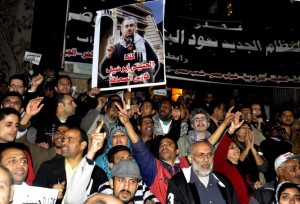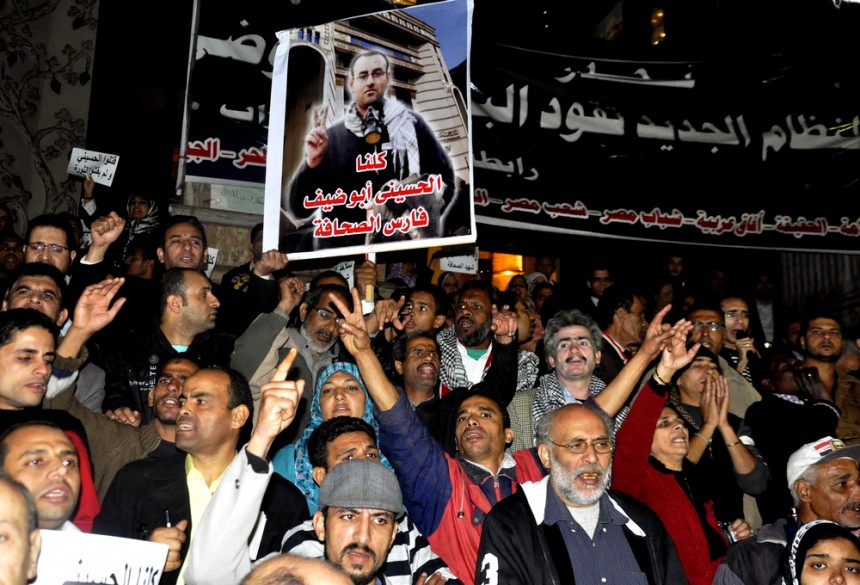
The Committee to Protect Journalists says freedom of the press in Egypt is in danger, in a report issued Wednesday.
The report examined the ability of journalists to do their jobs during the rule of ousted president Mohamed Morsi, the Supreme Council of Armed Forces and Adly Mansour’s interim government.
A major point of conflict during SCAF’s rule was the NGO case, when Egyptian authorities shut down the offices of 10 NGOs in December 2011. Three months later Egyptian authorities filed criminal charges against 43 people for “unlawfully operating internationally funded programs in Egypt.”
In June the defendants were sentenced to one to five days in prison.
During Morsi’s rule, journalist El Hosseiny Abu Deif was killed while covering presidential palace clashes in December 2012. Abu Deif wrote a piece accusing Morsi of giving his brother-in law a presidential pardon after his conviction in a bribery case. Abu Deif was shot dead during the clashes. His brother says that Abu Deif had previously received death threats from Muslim Brotherhood members on his Facebook page.
Numerous cases were filed against journalists while Morsi was in power. Morsi eschewed reform of the Ministry of Information and chose a Brotherhood member, Salah Abdel Maksood to head the ministry. The ministry controlled editorial content of Egyptian state TV.
Lawyers, mainly Brotherhood members, filed lawsuits against satirist Bassem Youssef, accusing him of insulting the president, insulting Islam and publishing false reports on his Friday night show El Bernameg. Youssef told CPJ – before Morsi’s overthrow – that he would not change his ways, saying “freedom of speech is not a gift, it’s a birthright.”
The closure of pro-Brotherhood channels was the most serious accusation made against the interim government in Egypt. The army raided Al-Jazeera Mubasher Egypt, interrupting broadcasts air time, to detain several employees. Gamal Eid, director of the Arabic Network for Human Rights Information, told CPJ that military censorship should be opposed as a “group punishment” that reflects Mubarak-era principles. Wholesale censorship of a particular perspective punishes viewers and denies citizens their right to receive information, he said.
The report recommended that Egyptian authorities end media censorship and develop clear constitutional articles that ensures press freedom, freedom of speech, and citizens’ rights to information.
The report urged political parties to “respect the role played by all journalists in covering news events, providing diverse perspectives, and giving voice to all sectors of society.”
CPJ advised news media to ignore the deep polarisation within Egyptian society and to expose all attacks on press freedom.
CPJ is an independent, non-profit organisation that promotes press freedom worldwide.

